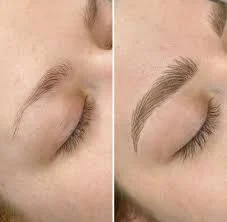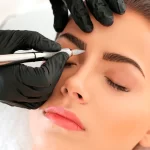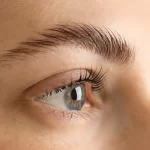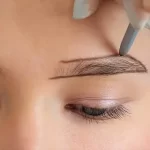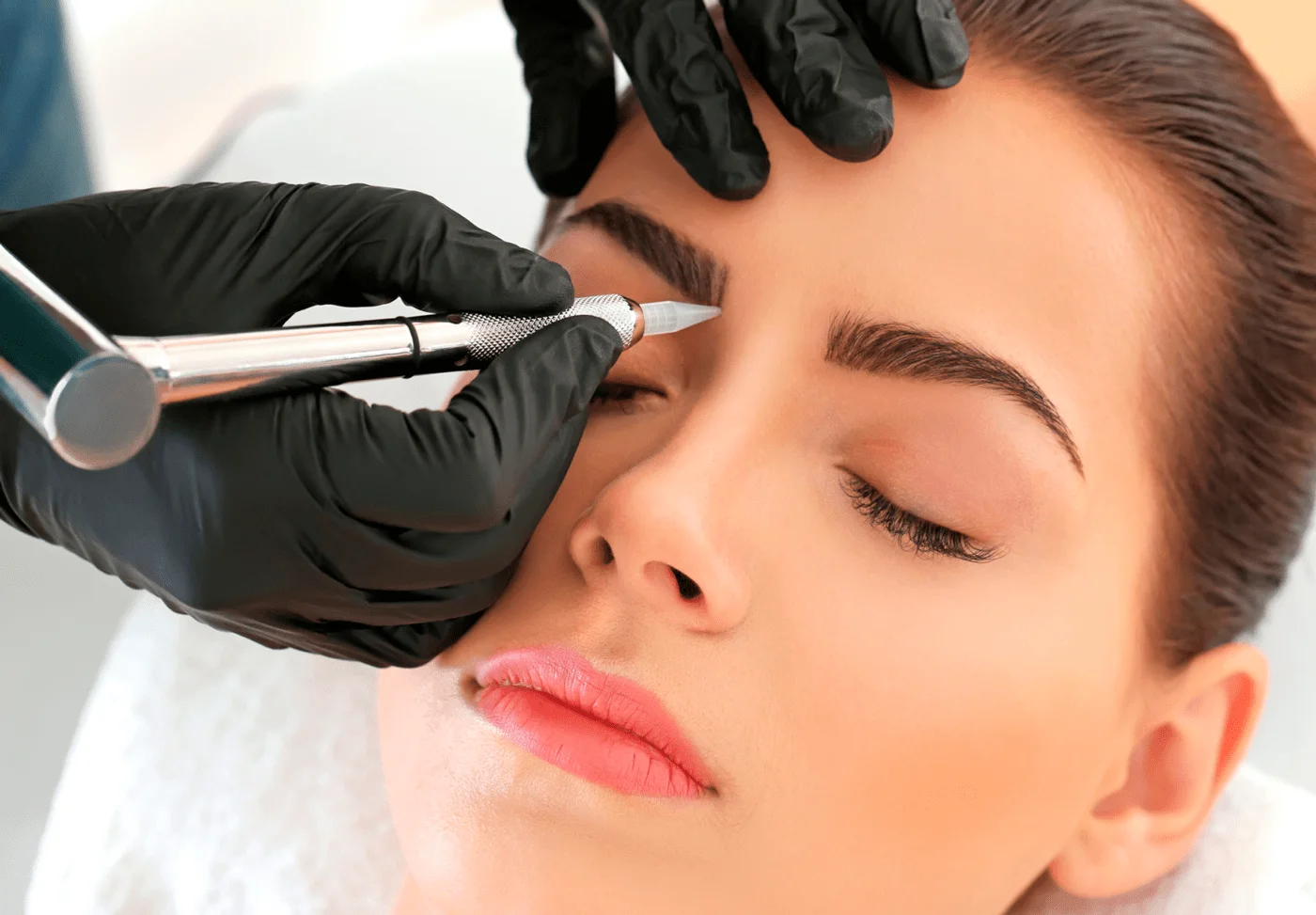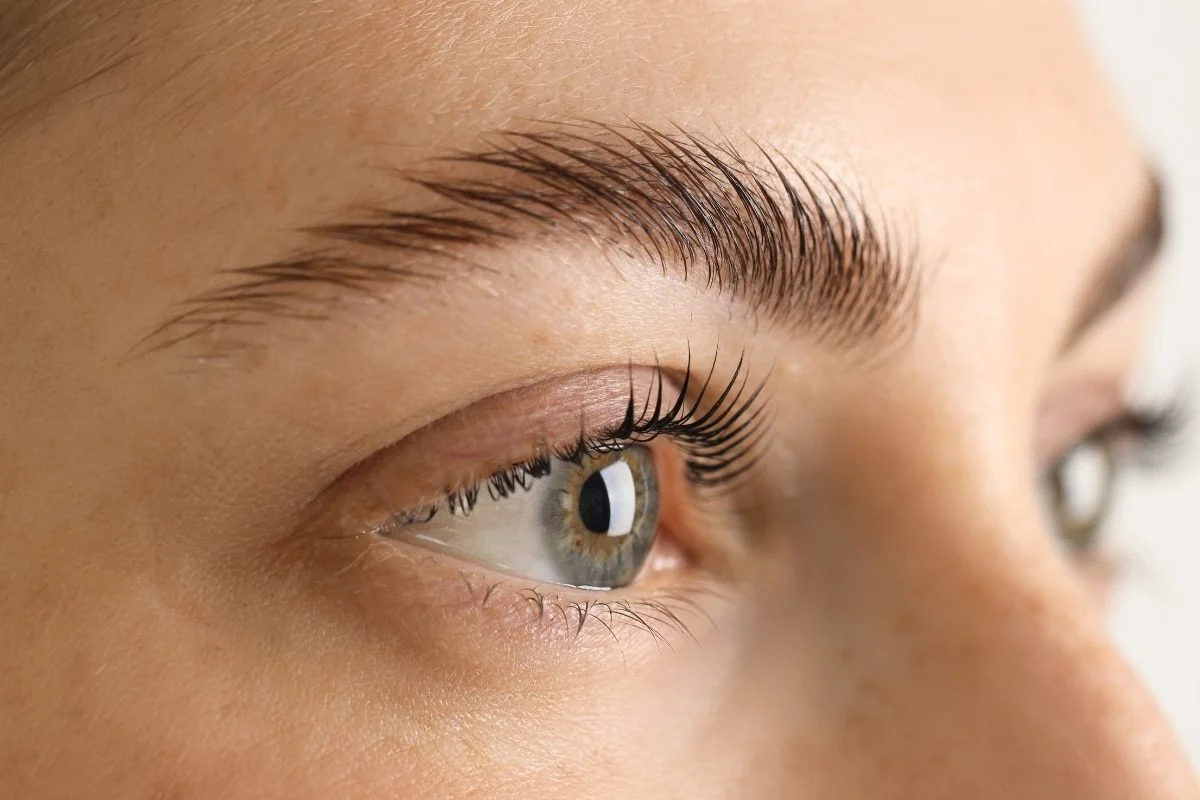Table of Contents
ToggleAt Kopelman Hair, we help patients understand how hormones affect their hair. The topic of testosterone and hair growth in females is important because this hormone can both support growth and contribute to hair loss.
Testosterone’s effects depend on genetics, age, and hormone balance. Dr. Kopelman emphasizes that recognizing these influences is the first step toward effective treatment.
Key Takeaways
- Testosterone affects women’s hair in different ways, supporting growth at normal levels but contributing to thinning or excess hair when imbalanced.
- Both high and low levels of testosterone can trigger female hair loss, with conditions like PCOS and menopause being common underlying causes.
- Dihydrotestosterone (DHT), a byproduct of testosterone, plays a major role in shrinking hair follicles and shortening the growth cycle in sensitive women.
- Accurate diagnosis through blood tests, scalp evaluation, and a thorough medical history is essential before treating hair loss related to hormonal imbalances.
- Women with advanced thinning may require a combination of medical therapies and restoration procedures, which specialists like Dr. Kopelman provide at Kopelman Hair.
How Testosterone Influences Hair in Women
How testosterone affects hair growth in females
Testosterone is a natural male hormone found in both men and women. In women, small amounts help regulate body functions and influence hair follicles. When balanced, it supports healthy growth, but an imbalance can impact scalp and body hair.
Will testosterone help a woman’s hair grow?
In some women with deficiencies, therapy may restore hair growth. Results vary, and treatment should only be done under medical supervision.
Testosterone and hair growth in females explained
Excessive testosterone can cause excessive body hair, while insufficient testosterone may lead to scalp thinning. Reviewing hormone levels is key before treatment.
Testosterone and Hair Loss in Women
Female hair loss from testosterone imbalance
Both high and low testosterone can interrupt the growth cycle. Women often present with receding hairlines, diffuse hair thinning, or noticeable loss at the crown
Testosterone hair loss in women: what to know
Hair loss linked to testosterone is commonly associated with androgenetic alopecia, where follicles shrink over time. In women, this often appears as gradual thinning rather than full baldness.
Will testosterone help with hair loss in females?
For some, adjusting hormone levels helps; for others, results are limited. Professional evaluation is required.
Low testosterone and hair loss in females
Deficiency weakens follicles and may increase shedding. Women experiencing fatigue, mood changes, and thinning hair may benefit from testing to confirm low hormone levels.
How to prevent hair loss while taking testosterone
Women undergoing therapy may notice shedding. To reduce risks, specialists recommend:
- Monitoring hormone levels regularly.
- Using topical treatments like minoxidil.
- Following a nutrient-rich diet.
The Role of DHT in Female Hair Loss
Testosterone can convert into dihydrotestosterone (DHT). This process, known as testosterone and DHT interaction, is a leading cause of follicle shrinkage. When follicles are sensitive, DHT shortens the growth cycle, resulting in weaker strands.
Doctors sometimes prescribe DHT blockers to reduce activity. This can protect follicles and slow the progression of hair loss.
Signs and Causes of Hormonal Imbalance
What are the signs of high testosterone in females?
Signs include acne, excess body hair, and scalp thinning. Early recognition allows timely treatment.
Common symptoms include:
- Acne and oily skin.
- Increased body or facial hair.
- Irregular or absent periods.
- Thinning hair or diffuse shedding.
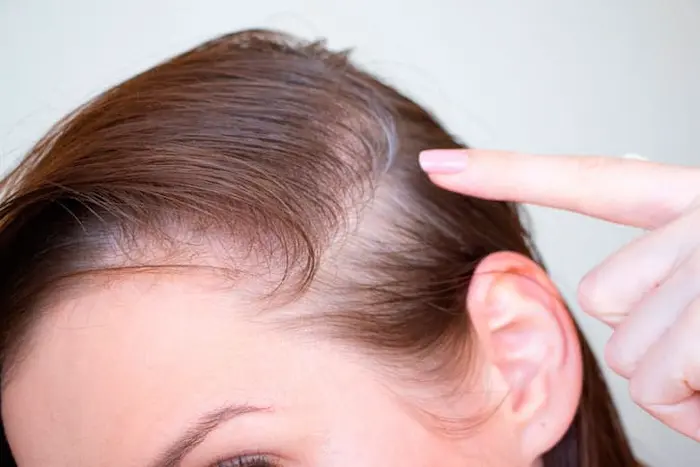
PCOS and elevated testosterone
Polycystic ovary syndrome (PCOS) is one of the most common causes of high testosterone in women. It can result in both scalp hair loss and excess body hair.
Women with polycystic ovaries often report irregular cycles, weight gain, and persistent shedding. Many women experience both excess body hair and scalp thinning, making early treatment important.
Menopause and shifting hormones
Declining estrogen and progesterone during menopause make testosterone’s effects stronger. This often leads to thinning at the part line or temples.
Lifestyle changes, proper nutrition, and stress management can help reduce the impact. Dr. Kopelman emphasizes that menopausal hair loss needs a tailored approach.
Other medical conditions affecting hair
The adrenal glands, thyroid, and certain medications can alter testosterone activity. Identifying these factors is essential for accurate treatment.
How to reduce body hair growth in females naturally
Exercise, balanced nutrition, and effective weight management can help support hormone balance and reduce unwanted hair growth.
Testing and Diagnosis for Hormonal Hair Loss
Accurate diagnosis is essential before starting treatment. Doctors may order blood tests to measure testosterone, estrogen, thyroid, and adrenal function.
Scalp exams and medical history reviews help identify patterns and rule out other causes. Dr. Kopelman stresses that testing ensures safe and effective care.
Treatment and Management Options
Medical treatments for hormonal hair loss
Options include:
- Minoxidil for scalp stimulation.
- Anti-androgen medications.
- Hormone therapy for deficiencies.
Lifestyle and dietary support for hair health
Iron, vitamin D, zinc, and protein are important for strong follicles. A balanced diet supports recovery.
Natural remedies for hormonal hair loss
Some women use scalp massage, essential oils, or techniques to reduce stress. While evidence is limited, these methods may complement medical care.
What are the side effects of a female taking testosterone?
Side effects can include acne, voice changes, body hair growth, and thinning hair. Hormone therapy must always be monitored.
When to see a hair restoration specialist
If hair loss progresses despite lifestyle changes, a specialist evaluation is recommended. Dr. Kopelman and his team create personalized plans for each patient.
Long-Term Outlook and Hair Restoration Options
Hormonal hair loss often stabilizes with early treatment. Some women notice regrowth, while others slow or stop shedding with consistent care.
For advanced cases, restoration methods may be needed. At Kopelman Hair, surgical techniques provide natural results for women who have not responded to medical approaches.
Related Insights for Men
Does testosterone increase hair growth in males?
In men, testosterone can fuel beard and body hair but also lead to androgenetic alopecia and male pattern baldness. Effects differ greatly between men and women.
Frequently Asked Questions about Testosterone and Hair Growth in Females
What hormone increases hair growth in females?
Estrogen and progesterone support scalp hair, helping it remain thick and strong.
Can testosterone therapy cause permanent hair loss?
In some cases, hair loss improves after adjusting therapy. Prolonged imbalance, however, may lead to permanent follicle damage.
Take the Next Step Toward Healthier Hair
If you are experiencing thinning, shedding, or changes linked to hormones, professional evaluation is the safest path forward. At Kopelman Hair, Dr. Kopelman and his team provide personalized assessments to identify the exact cause of female hair loss and create effective solutions.
Every patient’s situation is unique, and early intervention can make a significant difference in long-term results. We invite you to schedule a consultation with Kopelman Hair to discuss your concerns and explore treatment options tailored to your needs.



